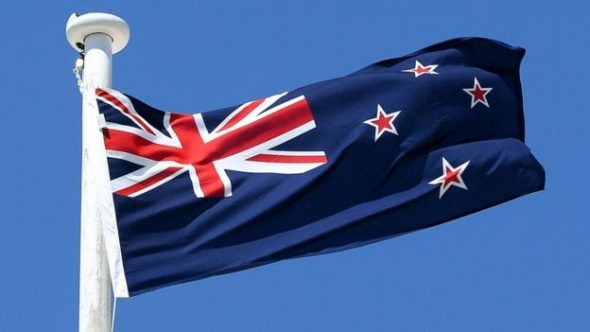 New Zealand Superannuation Fund recently announced it will take steps to reduce the carbon intensity of its NZ$30 billion (AU$28 billion) investment portfolio, including divestment of ‘high risk’ assets.
New Zealand Superannuation Fund recently announced it will take steps to reduce the carbon intensity of its NZ$30 billion (AU$28 billion) investment portfolio, including divestment of ‘high risk’ assets.
Applicable across the entire fund, the new strategy will reduce exposure to fossil fuel reserves and carbon emissions through engagement with companies, investment policy measures and targeted divestment.
Announcing the plans, CEO Alan Orr explained, “In coming years the global energy system will transition away from fossil fuels. Some assets we invest in today may become uneconomic, made obsolete or face a dwindling market.”
“Reducing the Fund’s exposure to these risks and to the physical impact of climate change is good for the portfolio, and consistent with our mandate to maximise returns without undue risk.”
The decision follows a 2015 climate risk study by asset manager Mercer, which was partly funded by NZ Super and informed the fund’s updated strategy. Mercer’s study provided risk analysis and recommended actions such as those announced by NZ Super.
From an Australian point of view, it’s interesting to note that Cbus, State Super and QIC also partnered with Mercer on the 2015 study.
So with NZ Super having heeded the study’s recommendations, what action have the Australian participants taken?
Sadly, it seems very little.
Cbus is a signatory to the Paris Pledge, a commitment by corporations to play their part to support the objectives of the Paris Agreement. The fund has also promised to publish its carbon footprint data and analysis this year, so we will soon have a concrete marker to measure future action against.
However, the fund has taken no concrete steps to reduce its fossil fuel exposure. Cbus is invested in a range of fossil fuel companies, including coal miner New Hope Group, as well as a substantial shareholding in unconventional gas explorer AWE.
The fund has stated fossil fuel divestment could increase investment risk by ruling out exposure to large diversified companies. But this reasoning fails to account for the decision to remain invested in small, pure-play fossil fuel companies.
Cbus also claims to “use engagement and proxy voting to influence the behaviour of the companies we invest in.” However, without a specific direction on climate change issues, Cbus’ voting policy has allowed their investment managers to support fossil fuel exploration bonuses. Market Forces research shows the fund voted in favour of remuneration packages with an explicit link to fossil fuel reserves at seven Australian energy companies in the last year.
Like Cbus, State Super has talked the talk on climate change, publishing a position statement on climate risk. But the New South Wales state government super fund has demonstrated no tangible action to reduce its investments in fossil fuel companies. State Super holds shares in oil majors Exxon Mobil and Chevron, Canadian oil sands specialist Suncor, as well as a number of local and international oil and gas producers.
The fund doesn’t disclose its proxy voting record, so it’s impossible to analyse whether they are effectively engaging with companies to reduce climate risk.
QIC manages $78 billion, on behalf of numerous Australian super funds, including QSuper, HESTA, LGIAsuper and Kinetic Super. They have significant investments in fossil fuel infrastructure projects, including the Epic Energy gas pipeline in South Australia and the Lochard Gas Storage Facility in Victoria, as well as a 58% stake in NZ gas and electricity provider Powerco NZ. QIC is also a 26.7% shareholder in the Port of Brisbane, where coal makes up almost half of all exports.
QIC is an 80% equity partner in AGL’s $2-3 billion Powering Australia Renewables Fund, which aims to develop, own and manage large-scale renewable energy projects. The firm has also published a comprehensive study into technology disruption within the energy market and associated infrastructure, which briefly recognised the Paris Agreement as mandating the replacement of fossil fuel generation with renewables.
While QIC may have some claims to taking action in response to Mercer’s study, its continued heavy investment in fossil fuel assets raises concerns. There is also no indication that the fund has taken any steps to decarbonise its equity portfolio in line with the study’s recommendations.
Similarly, Cbus and State Super have taken no tangible action to reduce climate risk within their portfolios. In fact, these funds have even encouraged further fossil fuel exploration at the companies they invest in. This is despite the well-established fact that we can’t possibly burn current fossil fuel reserves if we are to meet the Paris Agreement’s aims, let alone search for more.
The NZ Super announcement should serve as a strong wake-up call to its fellow participants in Mercer’s climate risk study. The Australian funds must announce similar plans to decarbonise their portfolios and reduce climate risk on behalf of their members in the very near future.
Funds must also ensure engagement practices are in line with their climate change position statements. This means no more support for companies incentivising executives to search for more fossil fuel reserves that cannot be burned if we are to limit global warming to less than two degrees.
Will van de Pol is an analyst with Market Forces










